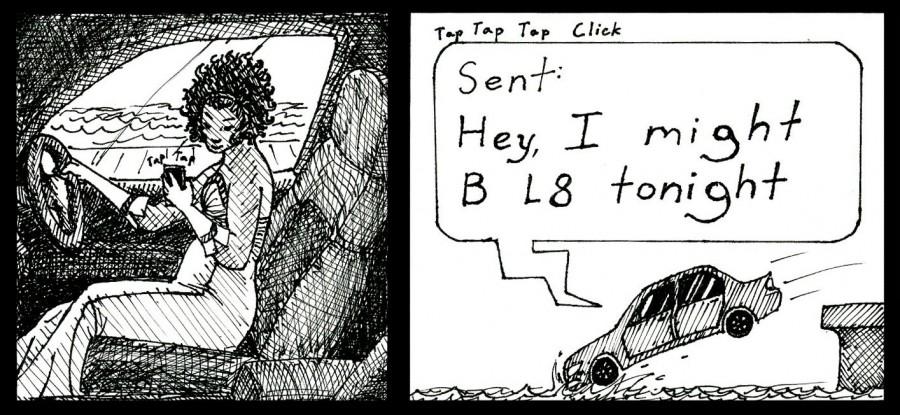While prom may be the most memorable moment of a person’s high school experience, it can also be the most dangerous. People should probably repress the YOLO mentality and follow the simple guidelines of having a safe night so that they can make it a night to remember and not the last night of their life.
It’s a common cliché to say that many students don’t think before they act, but this cliché is applicable to students on prom night who ignore safety issues and mindlessly get drunk and drive, text and drive and have unprotected sex.
It is no secret that students will “turn up,” or in other words have their older relatives buy them liquor to party with in their unsupervised hotel rooms. According to National Highway and Transport Safety Administration (NHTSA), approximately “33% of traffic deaths of children, 15-20 years of age, are alcohol related.” This statistic only applies to prom season (April and May) nationwide, not even considering the other 10 months of the year.
The school obviously can’t stop alcohol consumption by all teens, but they are trying to prevent it.
Every two years, U. City brings awareness by showing a live simulation (mock car crash) of what could happen if someone drives drunk. The setting involves student actors, a damaged car, fake blood, actual fire trucks, and a person being carried away in a body bag to evoke a visceral response from the students. The mock car crash will take place on April 4, planned by Officer Burks, Officer Potte, and Officer Gill.
“Students and actors didn’t take the simulation seriously in the previous years,” said Ms. McKenna, English teacher. “They were laughing and I had to leave because I know some friends who died from this. This is serious.”
It would serve students well to take the simulation more seriously. Besides the fake blood and the actors, this is a rather grotesque simulation that can hopefully persuade students to think twice before “taking it to the head” on prom night.
Besides alcohol, the number one cause of death before and after prom is texting. Whether under the influence or not, students also have to be aware of the horrors of texting while driving. Prom is a special night, so people will be cruising along the roads taking pre-prom “selfies,” updating their statuses: “omw to prom!” and even texting their friends just to say, “omw to pick u up.” With just a blink of an eye, their cars could be upside down, in pieces.
Students need to be cognizant of these acts that could have a huge negative impact, not only on their future, but on others’ as well. Participating in drinking and driving or texting and driving are setting an expiration date on people’s lives.
Prom is seen as a rite of passage, but students don’t seem to see it as a transition from one stage of life to another, but rather a transition from adolescence to adulthood, meaning for some a night to lose their virginity. This leads to an even more critical mistake that teens make on prom night, which is unprotected sex.
An unprecedented number of students spend pre-prom time considering “should I give it up on prom or graduation?” Actually, neither event should be treated like a wedding night. Students are mistaking themselves for adults, when in reality they don’t understand the consequences. Unprotected sex can not only lead to impregnation but also to HIV and STD’s.
People may laugh at slogans such as “click it or ticket”, and “you booze, you cruise, you lose,” but no one wants prom babies or to mourn for their friend after prom. Simple slogans such as these predicate the huge importance of staying safe throughout prom night, when people tend to party first and think later.
No one wants to spend their graduation day looking at a screen or a huge blown up picture that says, “In memory of…”


























